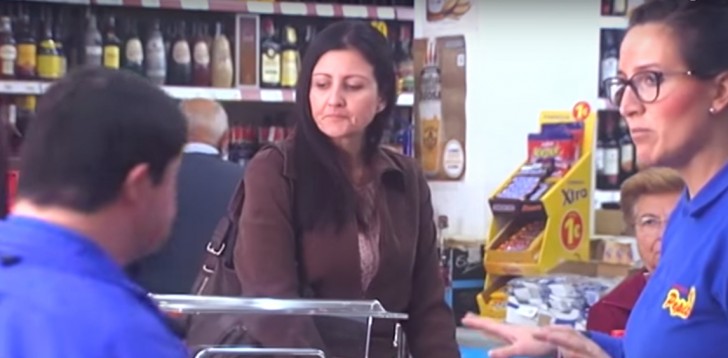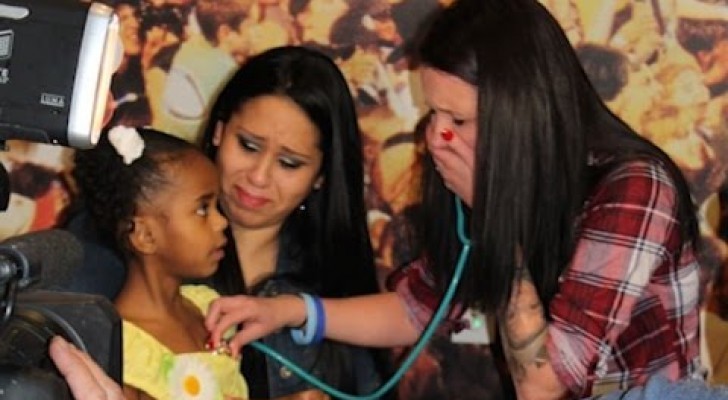Equal Respect for All workers

Despite the numerous battles that have been conducted over the decades, we cannot say that the barriers that divide people with disabilities have been totally eliminated.
Moreover, we are not talking about just architectural barriers that hinder the physical movement of those with different motor skills, but also mental limits that label people with disabilities with the definition of "different", which infringes, in fact, on their right to a dignified life.
For example, the workplace is one of those where prejudices can be seen, and the social experiment we present to you wants to point out and study this issue.

The situation is simple --- we are at the checkout counter of a small supermarket; While a woman is about to pay, the cashier calls her colleague who has Down syndrome to replace her, triggering the customer's horrified reaction.
Actually, the latter is an actress (among other things, an actress with a strong and very convincing presence), and the purpose is to see how many customers will actually choose to react to her offensive behavior.

If a more gradual reaction is generated in the first experiment (which however deserves applause), the situation radically changes in the next two cases. Especially when the client claims loudly that it does not seem right that there should be '"handicapped" person at the checkout counter and wants to be served by a "normal" person, everyone in line literally turns against her, with strong words of true indignation and contempt.
The situation ends with the beautiful moment when women embrace and comfort the boy by encouraging him not to take care of the woman's shameful words.

Although the video is in Spanish and you cannot understand every word, the emotions of the people in the line are clearly visible and can only make us think --- how many of us would be willing to make a firm decision and speak out in such a situation? How much is our society really inclusive towards people with disabilities?
We hope you enjoy the show, especially its conclusion.





